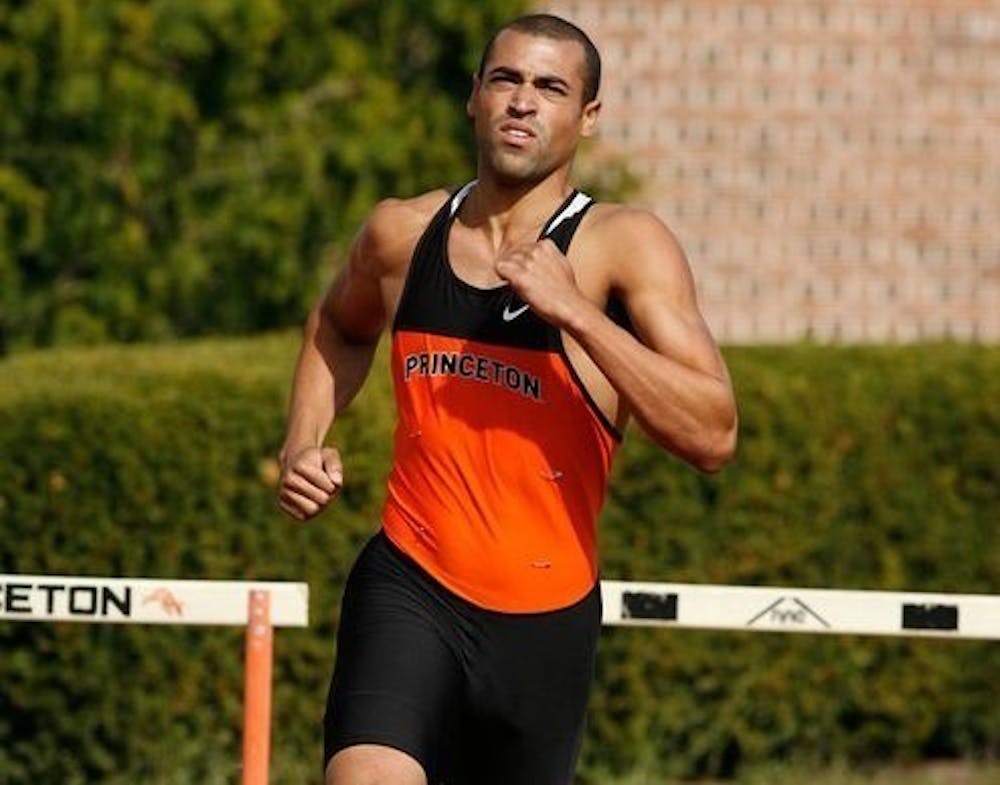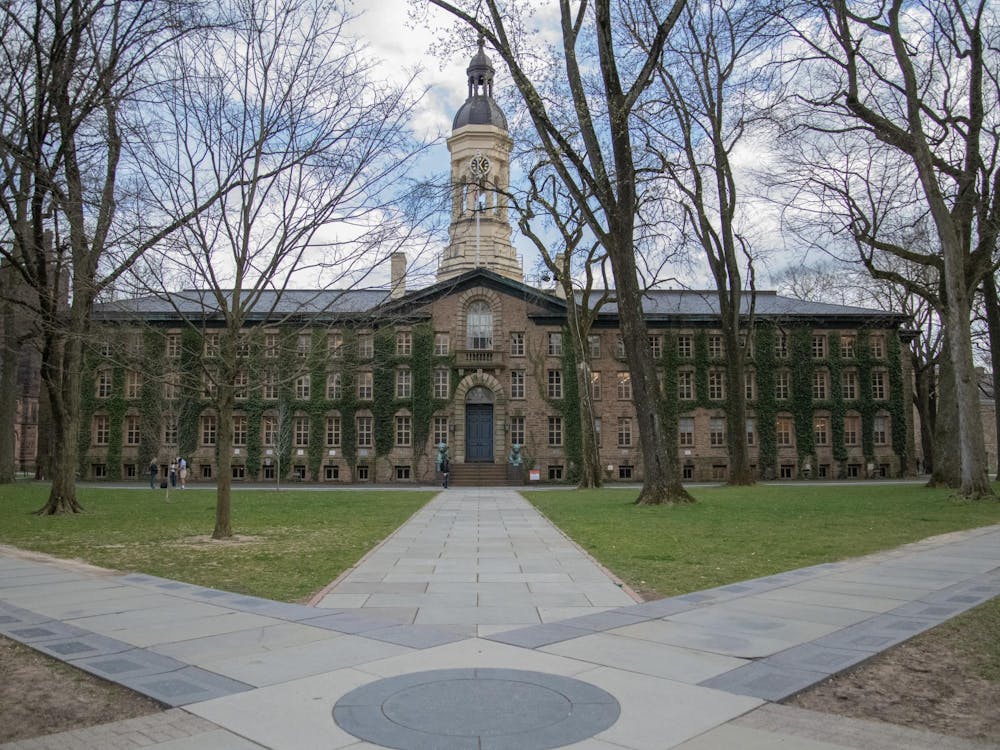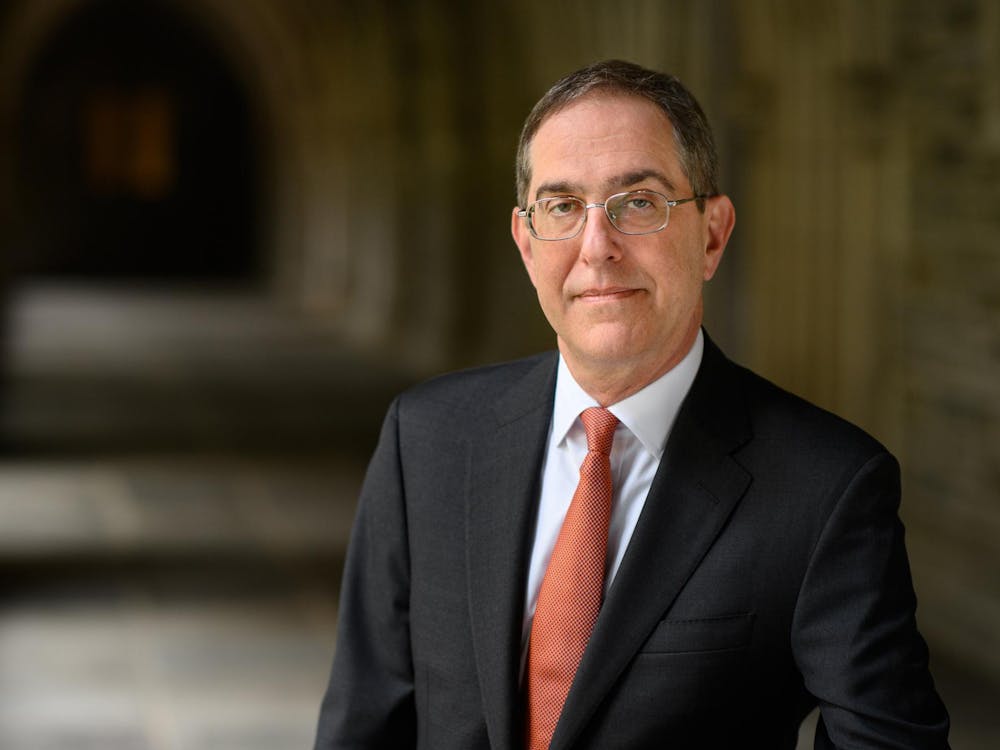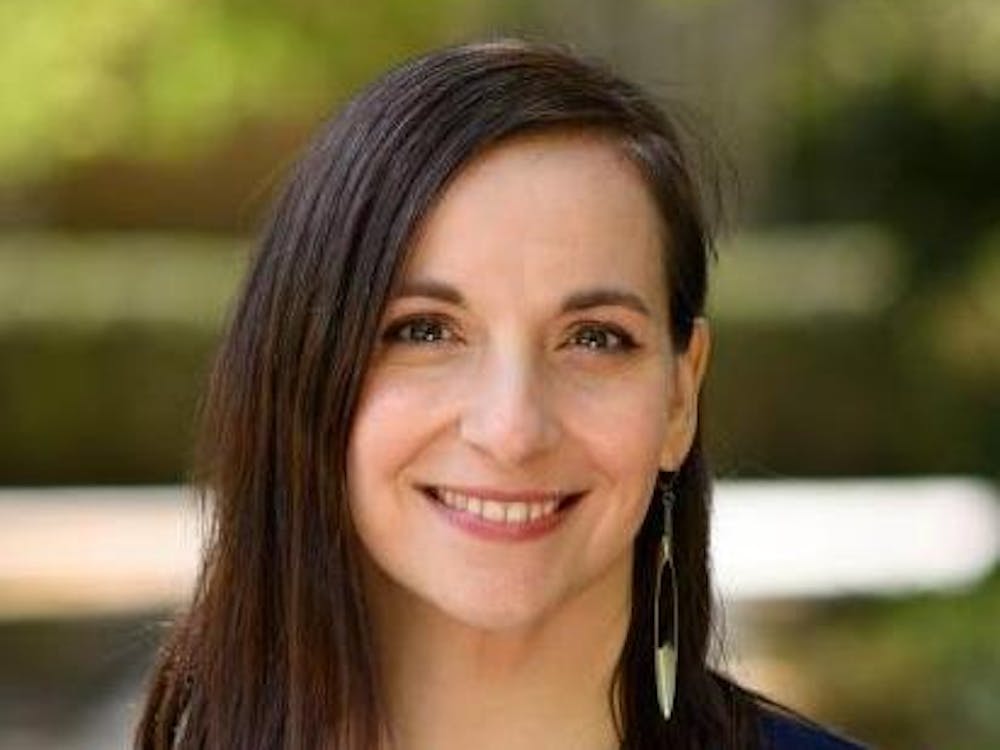Ian Thomson ’09 is worried about this profile.
He peppers his interview with pauses, with ums, with wait-just-a-seconds. He apologizes: “I’m trying to think about what I should say because I’m on the record here.” He asks about this piece’s angle – three separate times.
Thomson has reason to be wary. Jezebel called him a “dick.” According to Bustle, he’s “shockingly terrible.” CeleBuzz proclaimed him “hypocritical,” “scary,” and “obviously not a feminist.” And to E!, he’s “sexually frustrated,” “shady,” and “epically nonsensical.” Darker corners of the internet are less kind.
Only a decade before Thomson found himself facing the wrath of America’s online feminists, he was heading to his first year of classes and races at the University. He’d just graduated from Massachusetts’ Deerfield Academy, a prep school that had “changed [his] life,” set him on an academic path he could never have imagined, and introduced him to sprinting.
Thomson graduated from the University as one of the track team’s finest athletes. His last individual race of his collegiate career, Thomson tripped over a hurdle and fell on his face; he made up for it by nabbing the Ivy League title in the 400 meter relay. Named First Team All-Ivy his senior year, Thomson was a history concentrator with a certificate in African American studies, a proud member of both the 21 Club and Cap and Gown Club, and totally clueless about what career he wanted to pursue after college.
So instead of deciding, he earned a year-long fellowship with Princeton in Asia. Like Clare Gallagher ’14, another subject of this series, he taught English in Bangsak, Thailand – a tiny fishing village where there was “literally nothing to do.”
Thomson bought himself a drill and a jigsaw, challenged himself to build a home’s worth of furniture, used his high school physics skills to rewire his house, and learned Thai. But when it came to his professional aspirations, his twelve months in Bangsak “did not help clarify things. At all.”
Upon his return to San Francisco, he started interning at a digital media publisher. He plodded through the first five months after his return stateside. And then, as Thomson walked down the street one August afternoon, a car driving 60 miles per hour plowed straight into him.
Take it from Thomson: “This part is important.”
The crash broke both his legs on impact, dislocated his shoulder, broke his elbow, and smashed his face. For a block, Thomson held onto the hood of the car. It whipped around a corner and threw him off, breaking his left arm. He lay on the ground, dying.
The ambulance that picked him up measured his level of consciousness at a three on the Glasgow Coma Scale. Scores of eight and below indicate severe brain injury; a score of three indicates deep coma or death.
The man admitted to the emergency room immediately before Thomson was a shooting victim in critical condition. His doctors were urgently seeking an organ donor, and there lay Thomson: a visibly fit former Division I athlete with a fractional chance of survival. They started pawing through his wallet to find an emergency contact and his donation status.

Suddenly, a resident stopped short in her tracks.
She had pulled out Thomson’s Princeton ID. Doctor Elizabeth Inkellis Langhammer ’07 realized that she knew this man; that her little sister in Princeton’s Kappa Kappa Gamma chapter was Thomson’s best friend. The connection was convoluted, but it proved enough to get Thomson wheeled into the OR and pieced back together.
Doctors tried to amputate Thomson’s legs. He refused. They told him he might never walk again. He spent only a month in a wheelchair. They told him that he was lucky even to be alive; that a future involving running was too much to ask for.
A lifetime of experience as an athlete, a grueling gym schedule, and a boost from his genetic gifts allowed Thomson to rebuild his body, muscle by muscle, until he was logging 15 miles a week.
“The idea of dying,” he says, “the idea of failing – it just didn’t occur to me. And that is what allowed me to move on.”
Save for the titanium rods in both his legs, the bar in his left arm, the two screws in his right elbow, and a faint scar by his eyebrow, Thomson made a full recovery. He started work at a global recruitment firm, headhunting Chinese executives for 20th Century Fox. He loved his boss, loved work, loved Los Angeles. All was well.
And then it wasn’t. To Thomson, the car accident was nothing compared to what came next.
Here’s how Thomson tells it: he was walking down the street with his boss one LA morning, looking like a “cool guy – light grey suit, white shirt, fancy glasses.”
"This woman comes up to me” – he emphasizes that last word – “and she says ‘Oh my God. I do casting for The Bachelorette. I think you should be the next Bachelor.’”
Was Thomson surprised? Not quite. He looks like the athlete he was, boasts a made-for-TV-smile. He’d modeled before, done a commercial with Jerry Rice, and seen himself on a Times Square billboard.
“These things just happen to me,” he says. While he was wary at first – of the isolation, the eight weeks off work, the professional implications – his boss nudged him to take the woman up on her offer.
“Why not?” Thomson remembers himself saying. “I’m along for the ride.”
He shouldn’t have been.
Thomson traveled to Agoura Hills to join 29 other men in a franchised quest for Kaitlyn Bristowe’s heart. It went well for him, at first.
“Ian is one of the most compassionate guys,” gushed Bristowe in a third-episode confessional interview. “He’s been through a lot and he knows what he wants. I am beside myself with this human being. I can’t figure out what it is. It’s just how he makes me feel. It’s attractive.”
Three episodes and a handful of scored, nationally-televised make-outs later, Bristowe’s flame with Thomson petered out. Things went downhill.
“I don’t understand why Kaitlyn wouldn’t want me,” Thomson informed the cameras. “Princeton graduate, former model that defied death and has been around the world a couple of times.” And, he added – to his audience of six million viewers – “She’s not half as hot as my ex-girlfriend … Like, I have a good time in my own life. And I meet chicks, and I have a lot of sex in my own life.”
Cue Thomson’s expulsion from the mansion. Cue an explosive exit interview. Cue his national excoriation.
How would Thomson – educated, collected, mature and, from this reporter’s perspective, genuinely kind – describe his time on The Bachelorette? Manipulative? Coercive? Authentic?
“Ever heard of the Stanford Prison Experiment?” He asks. “I can’t say too much, but I would refer you to that. It’s a method that these people have perfected over twenty seasons. They know what they’re doing. It’s not intended to be fair. It’s intended to be a show.”
When Thomson lost his first race, he won the second. When a team of doctors gave up on him, he rebuilt himself from the ground up. When a nation gave up on him, he did the same thing. He took two weeks off work, reflected on just where he’d gone awry, and buckled down to business.
It’s been four years since Thomson’s – now an executive recruiter at his own firm, One Bridge Partners – time in the Bachelor Mansion. He laughs at questions about his car accident because he’s “on the other side of it.” He’s not yet laughing about his time on ABC.
That’s not to say he hasn’t accepted it.
“If you’re to look at your life,” he says, “all these things are so meant to be. Everything comes full circle. There’s nuggets of wisdom throughout every process.”
His advice for Princeton students seeking those nuggets of wisdom is twofold.
First, he says, “be social. Meet people. Take advantage of the opportunity you have at Princeton.” And, he says with a laugh, “it gets so much better when you graduate.”
Second: “If someone loves you or if you love someone else, do not let them go on reality shows.”









